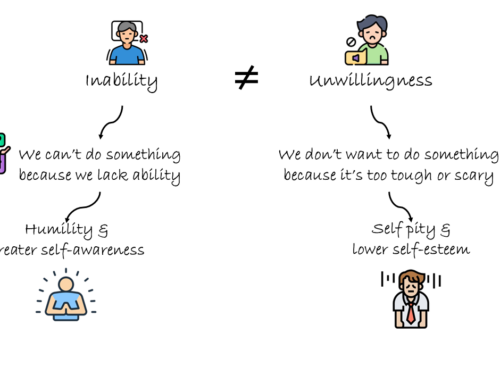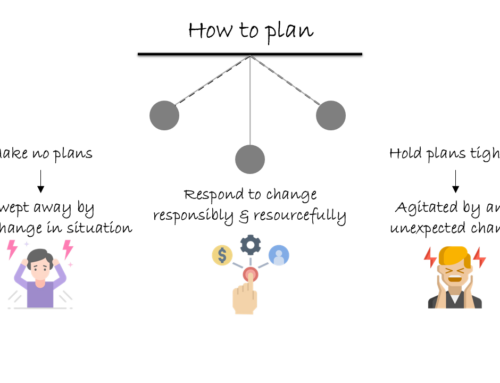Fear is a natural human response to danger. When seen as an impetus to be cautious, fear can check us from recklessly charging into danger. In such situations, fear is not only natural but also desirable. This positive role of fear is conveyed in sayings such as, “Fools rush in where angels fear to tread.”
But fear often degenerates into panic, wherein we get carried away by our imagination. In the horror movie broadcast by our mind, we see the possibility of danger transmogrifying into the inevitability of disaster. That dystopian imagination may overwhelm us emotionally and paralyze us physically, thereby putting us in the clutches of a full-fledged panic attack.
In the horror movie broadcast by our mind, we see the possibility of danger transmogrifying into the inevitability of disaster.
For example, we may see a terrible road accident. The resulting fear can prompt us to take necessary precautions such as putting on the seat belt and avoiding over-speeding. But if we let our fear-fueled imagination run wild, we become sitting ducks for a panic attack. The Bhagavad-gita (18.35) indicates that habitual fearfulness characterizes determination in the mode of ignorance. Such misdirected determination impels us to hold on to negative thought-patterns despite knowing that they are irrational and injurious.
To prevent the fear stimulus from triggering a panic reaction, we can strengthen our intelligence by practicing bhakti-yoga diligently. Of course, bhakti’s main gift is to connect us with Krishna, whose remembrance provides the supreme security and is the best counter for anxiety. Additionally, bhakti sharpens our intelligence and curbs our mind so that the intelligence replaces our mind as the default determiner of our actions. By intelligently evaluating the situation, we can take effective steps to minimize the possibility of danger.
Thus, we don’t need to get worked up about panic attacks – we just need to work for curbing the imagination that allows panic to attack us.
Explanation of article:
https://www.youtube.com/watch?v=EV6T6tl_bV0
Podcast:






Leave A Comment